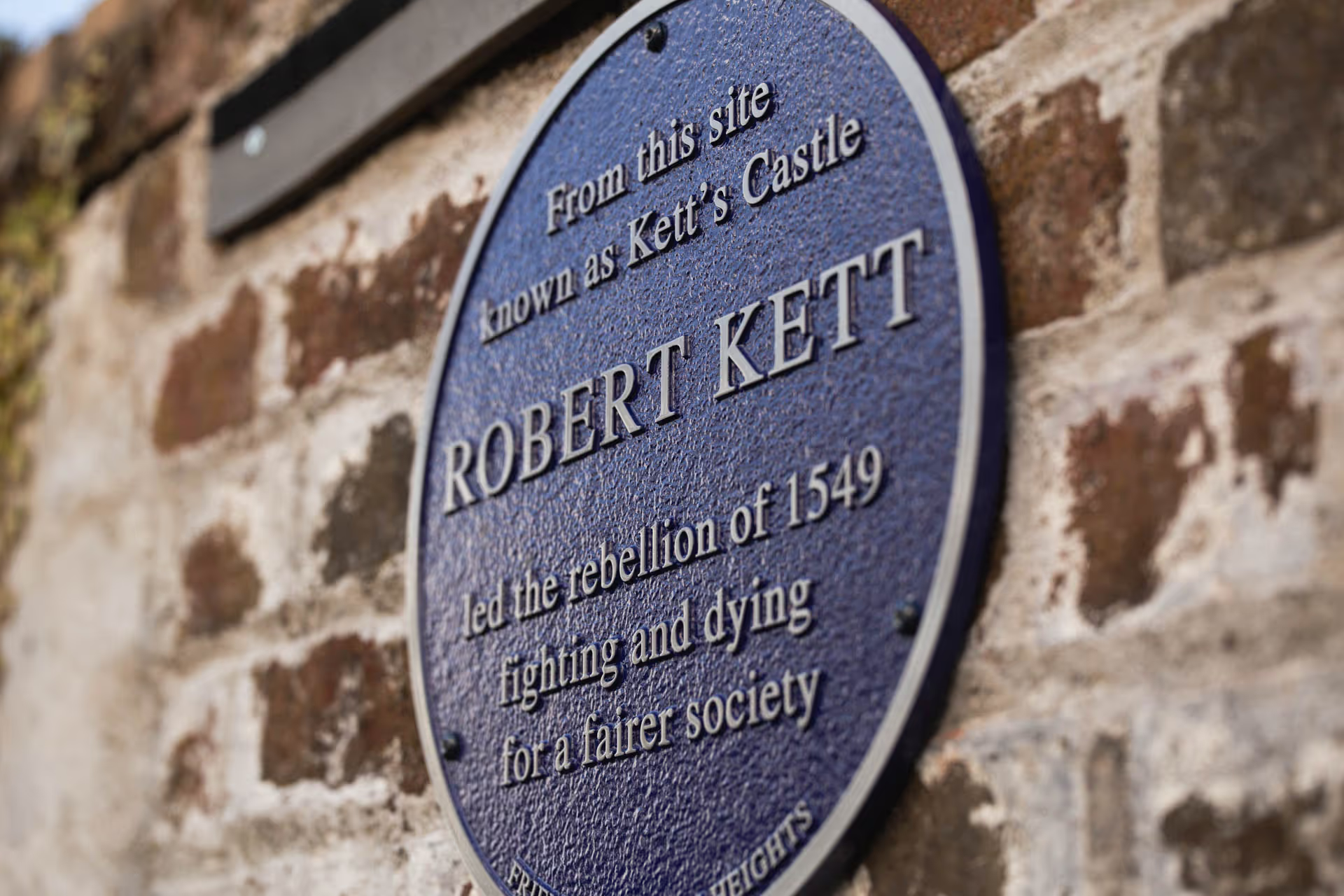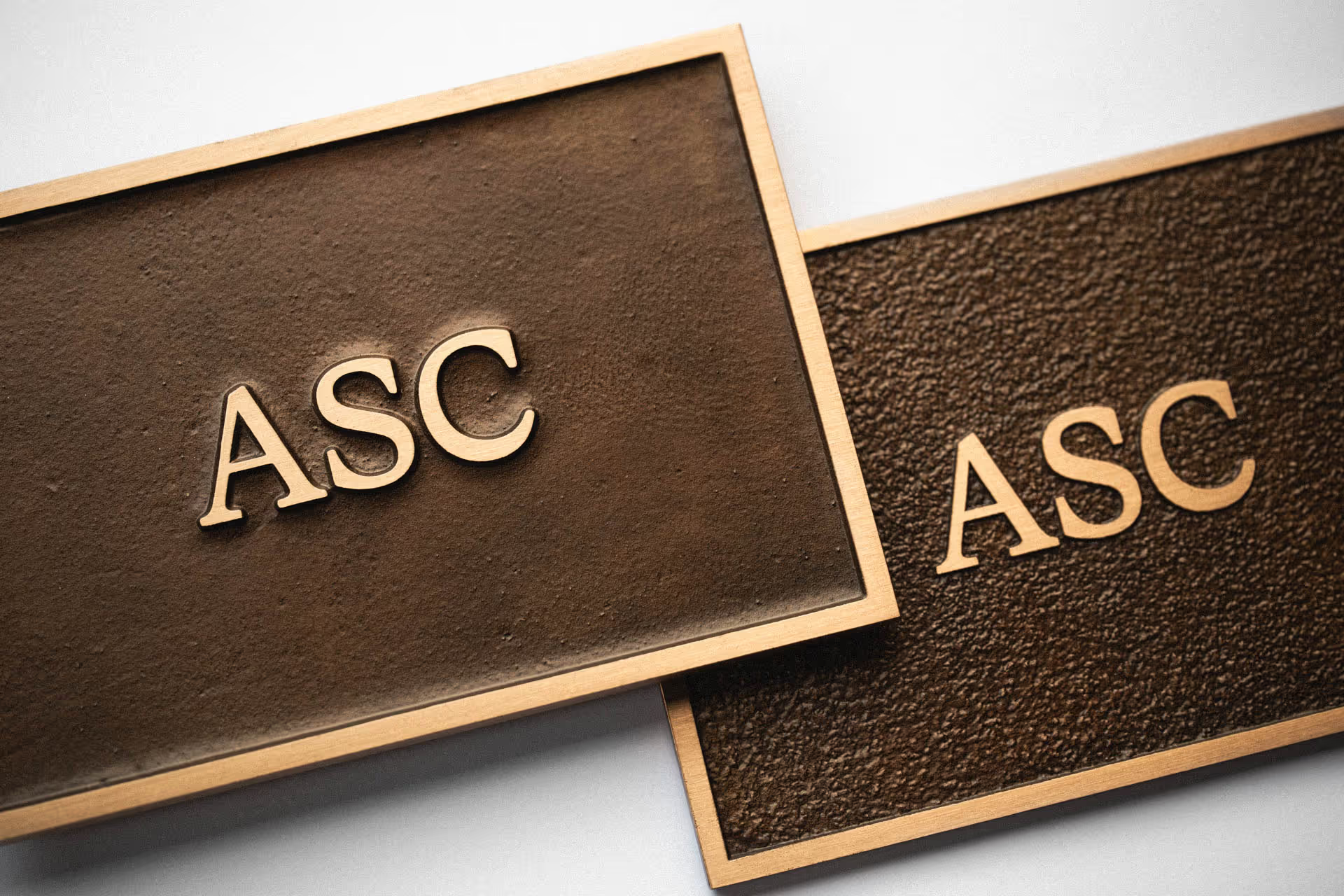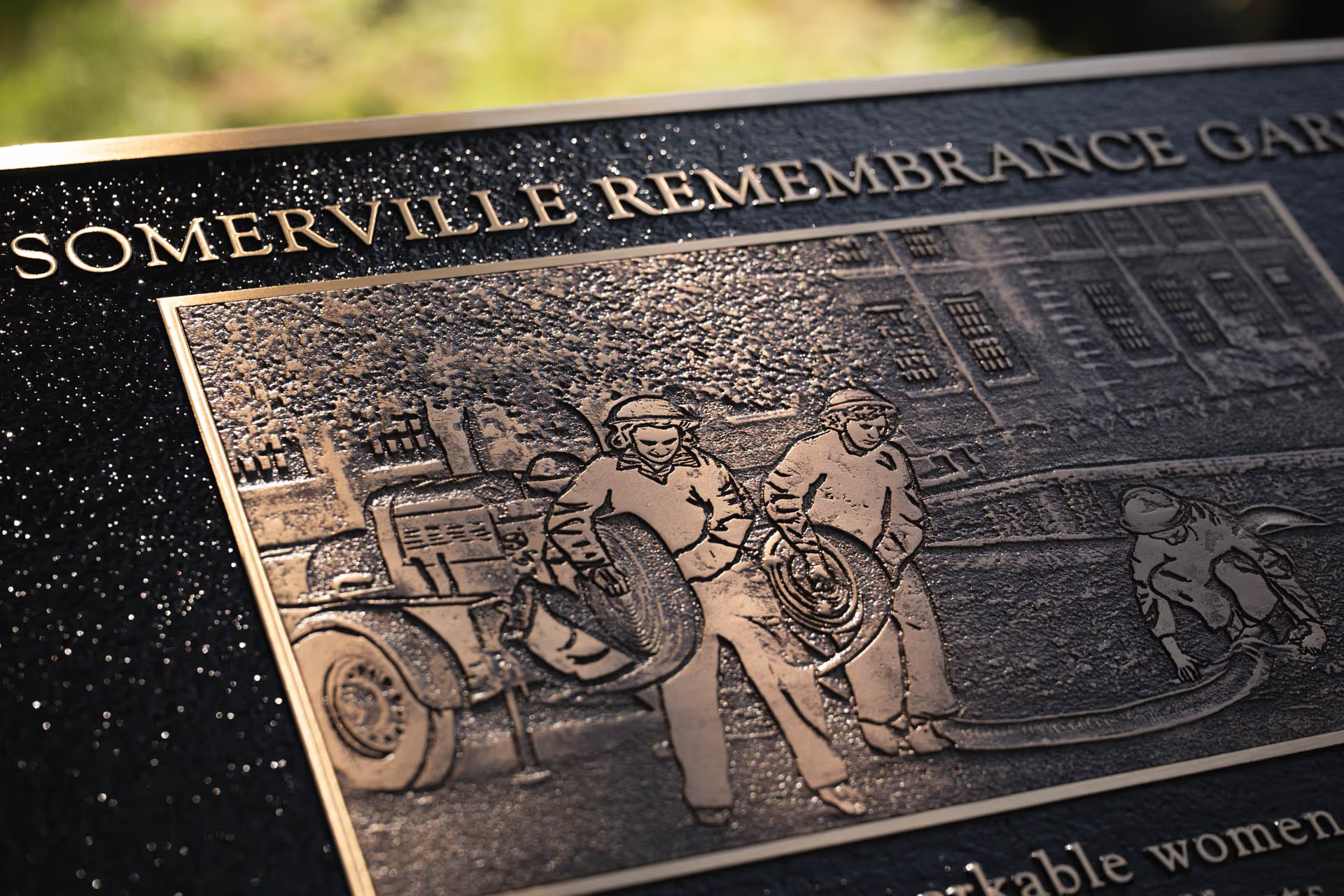Best materials for outdoor plaques
Bronze or aluminium? Choosing the right material for your plaque
When it comes to creating lasting, high-quality plaques, bronze is our material of choice at Anglia Sign Casting. However, aluminium is also a fantastic alternative, offering a unique set of benefits. But which material is the right choice for your project?
Whether you’re honouring a loved one, commemorating a community milestone, or adding a distinguished touch to your business, school, or home, choosing the right material is essential. Both cast bronze and aluminium are known for their durability and timeless aesthetic, but each has distinct qualities that make it ideal for different applications.
What is bronze?
Bronze is a timeless metal alloy, primarily composed of copper and tin, known for its durability, strength, and rich, warm appearance. For centuries, it has been used in art, architecture, and signage, prized for its ability to withstand the elements while developing a distinctive patina over time.
In the world of plaque-making, bronze is considered the gold standard. It offers exceptional longevity, a prestigious aesthetic, and a sense of tradition that makes it ideal for memorials, historical markers, and professional signage. Thanks to its natural resistance to corrosion, bronze plaques remain beautiful and legible for generations.
What is aluminium?
Aluminium is a lightweight yet durable metal, known for its versatility, corrosion resistance, and sleek, modern appearance. Unlike bronze, which develops a patina over time, aluminium maintains its clean, silver-toned finish, making it a popular choice for contemporary signage and memorials.
Thanks to its naturally rust-resistant properties, aluminium is well-suited for both indoor and outdoor applications, especially in environments exposed to moisture or harsh weather conditions. Its lighter weight and affordability make it a practical alternative to bronze, without compromising on durability or style.
The pros and cons of bronze
Bronze has long been the material of choice for plaques, memorials, and signage, offering a perfect balance of durability, elegance, and historical significance. However, like any material, it has its advantages and considerations.
Pros of bronze:
- Timeless aesthetic – With its rich, warm tones and ability to develop a beautiful patina over time, bronze exudes a sense of prestige and tradition.
- Exceptional durability – Highly resistant to wear, corrosion, and extreme weather, making it ideal for long-lasting outdoor signage.
- High-quality finish – Bronze plaques can be polished, painted, or patinated to achieve a variety of refined looks.
- Historical & prestigious – Commonly used for memorials, official markers, and commemorative plaques, bronze conveys a sense of permanence and importance.
Cons of bronze:
- Higher cost – As a copper-based alloy, bronze is more expensive than alternatives like aluminium.
- Heavier weight – Due to its density, bronze plaques require secure mounting and may not be ideal for all applications.
- Patina development – While many appreciate the natural aging process, some may prefer a low-maintenance material that doesn’t change in appearance over time.
The pros and cons of aluminium
Aluminium is a versatile and modern alternative to bronze, offering a sleek appearance and excellent durability. While it’s a fantastic choice for many applications, it’s important to consider its strengths and limitations.
Pros of aluminium:
- Lightweight & easy to install – Unlike bronze, aluminium is much lighter, making it easier to mount and handle.
- Cost-effective – Aluminium is generally more affordable than bronze, making it a great choice for budget-conscious projects.
- Corrosion-resistant – Naturally resistant to rust and corrosion, making it ideal for outdoor signage and memorials.
- Modern aesthetic – With its sleek, silver-toned finish, aluminium provides a contemporary look that suits modern plaques and signage.
Cons of aluminium:
- Lacks the prestige of bronze – While durable, aluminium doesn’t have the same historical or premium appeal as bronze.
- Less resistant to wear – Over time, aluminium is more prone to scratches and surface damage compared to bronze.
- No patina development – Unlike bronze, aluminium does not develop a patina, meaning it won’t age naturally or achieve the same antique character.
Is aluminium the right choice for you?
If you’re looking for a lightweight, budget-friendly, and modern-looking plaque, aluminium is a fantastic option. It offers excellent durability and weather resistance, but if you want a more traditional, prestigious look, bronze may be the better choice.
When deciding between the two, consider your budget, location, and the overall aesthetic you want to achieve. No matter which material you choose, both are crafted to stand the test of time and serve as a meaningful tribute for years to come.
If you have any questions or need guidance on selecting the right material for your project, please don’t hesitate to get in touch. We’re always happy to help!




